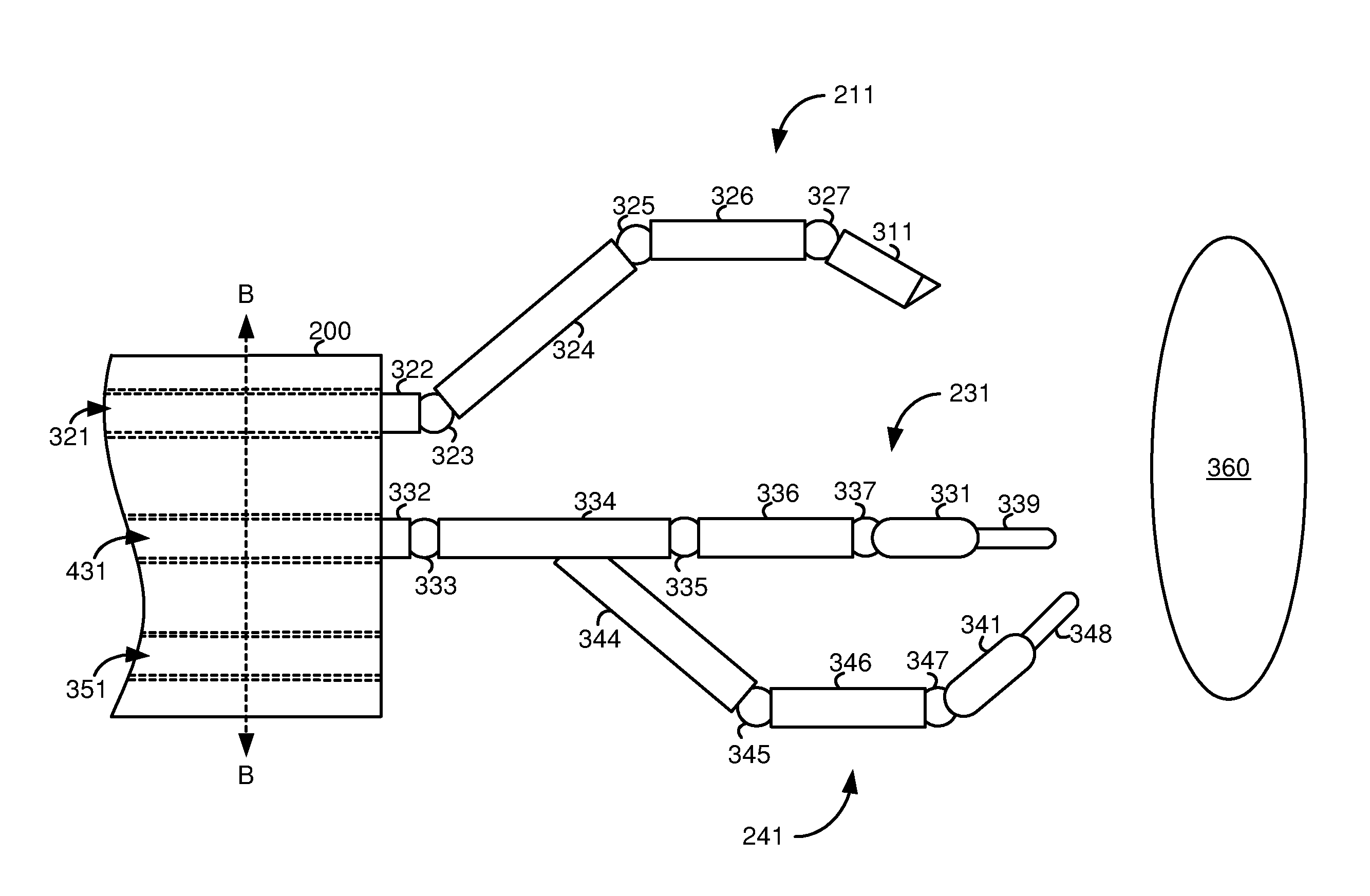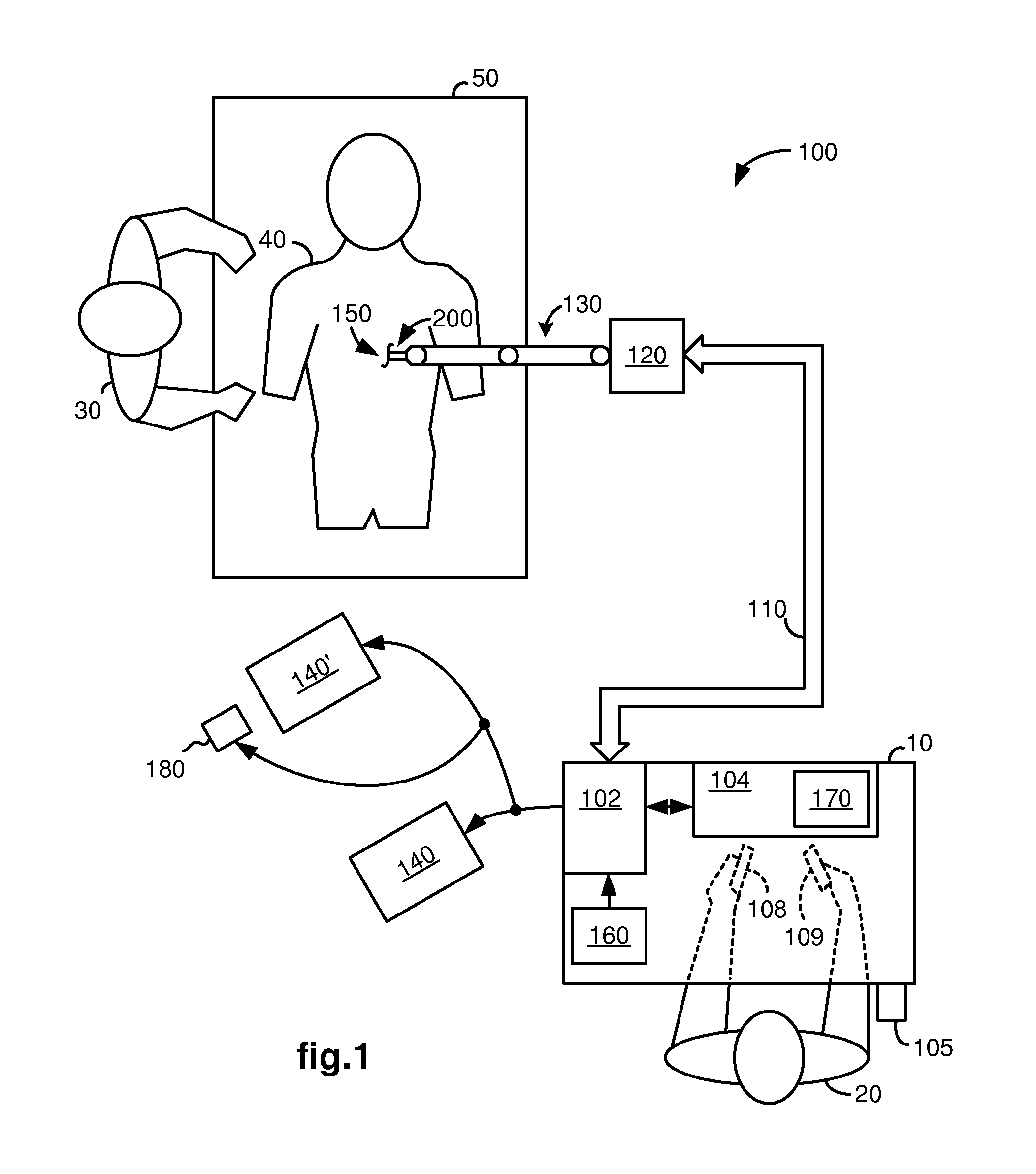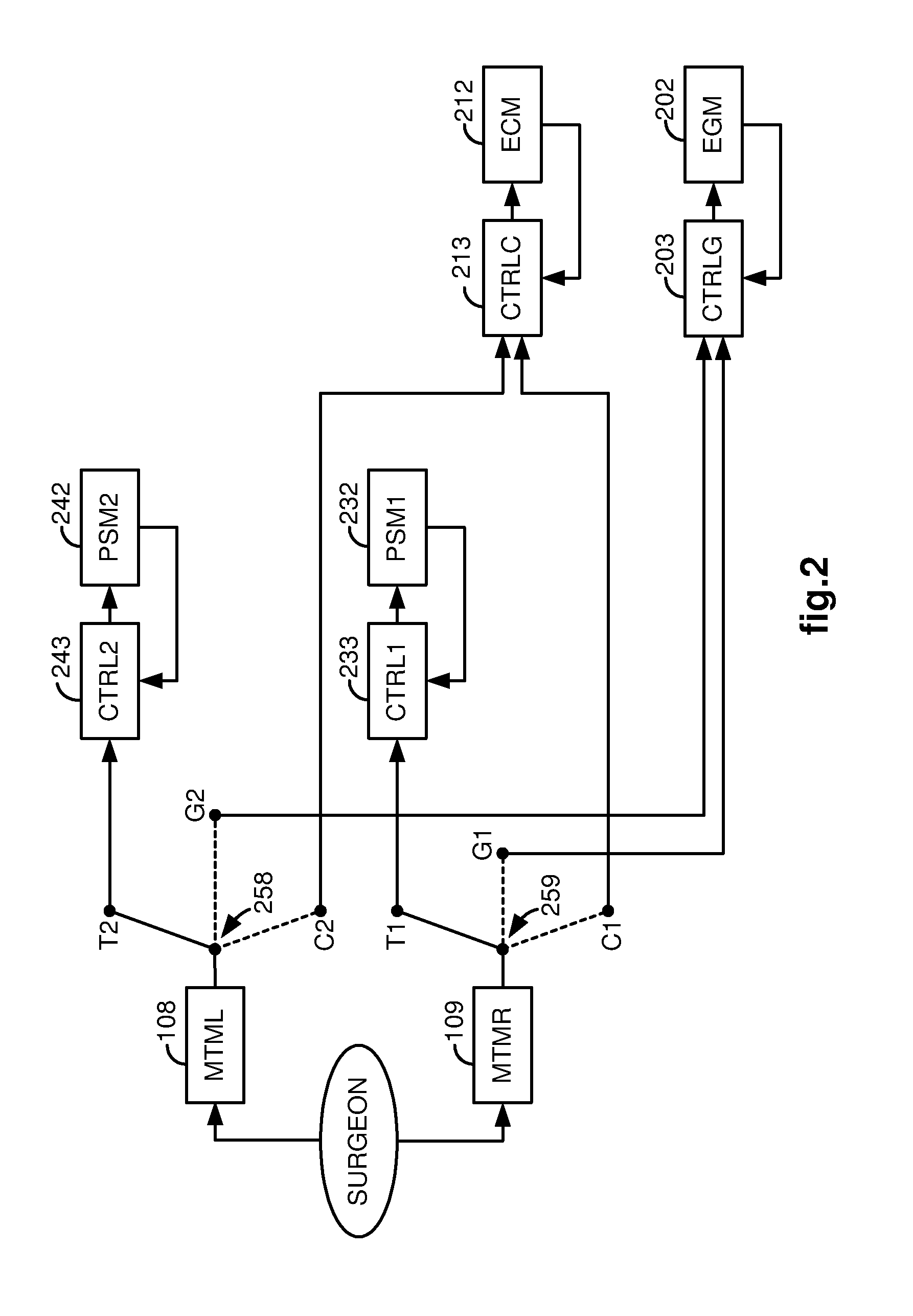Medical robotic system providing an auxilary view including range of motion limitations for articulatable instruments extending out of a distal end of an entry guide
a robotic system and auxiliary technology, applied in the field of medical robotic systems, can solve the problems of affecting the positioning of patients, harming patients or otherwise adversely affecting the performance of medical procedures, and it is more difficult for the operator to avoid collisions between linkages
- Summary
- Abstract
- Description
- Claims
- Application Information
AI Technical Summary
Benefits of technology
Problems solved by technology
Method used
Image
Examples
Embodiment Construction
[0041]FIG. 1 illustrates, as an example, a top view of an operating room in which a medical robotic system 100 is being utilized by a Surgeon 20 for performing a medical procedure on a Patient 40 who is lying face up on an operating table 50. One or more Assistants 30 may be positioned near the Patient 40 to assist in the procedure while the Surgeon 20 performs the procedure teleoperatively by manipulating input devices 108, 109 on a surgeon console 10.
[0042]In the present example, an entry guide (EG) 200 is inserted through a single entry aperture 150 into the Patient 40. Although the entry aperture 150 is a minimally invasive incision in the present example, in the performance of other medical procedures, it may instead be a natural body orifice. The entry guide 200 is held and manipulated by a robotic arm assembly 130.
[0043]As with other parts of the medical robotic system 100, the illustration of the robotic arm assembly 130 is simplified in FIG. 1. In one example of the medical...
PUM
 Login to View More
Login to View More Abstract
Description
Claims
Application Information
 Login to View More
Login to View More - R&D
- Intellectual Property
- Life Sciences
- Materials
- Tech Scout
- Unparalleled Data Quality
- Higher Quality Content
- 60% Fewer Hallucinations
Browse by: Latest US Patents, China's latest patents, Technical Efficacy Thesaurus, Application Domain, Technology Topic, Popular Technical Reports.
© 2025 PatSnap. All rights reserved.Legal|Privacy policy|Modern Slavery Act Transparency Statement|Sitemap|About US| Contact US: help@patsnap.com



